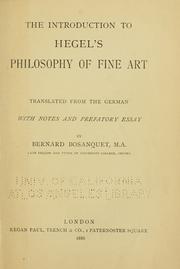
The Introduction To Hegel S Philosophy Of Fine Art 16 Edition Open Library
13/2/1997 Georg Wilhelm Friedrich Hegel Along with JG Fichte and, at least in his early work, FWJ von Schelling, Hegel (1770–11) belongs to the period of German idealism in the decades following Kant The most systematic of the postKantian idealists, Hegel attempted, throughout his published writings as well as in his lectures, to elaborate aHe then taught principally at the University of Berlin (1818–31) His work, following on that of Immanuel Kant, Johann Gottlieb
Hegel art quotes
Hegel art quotes-Hegel concluded his Aesthetics by writing, "Of all the masterpieces of the classical and modern world, the Antigone seems to me to be the most magnificent and satisfying work of art"1The Antigone owes its place in Hegel's hierarchy to its focus on Antigone's uncanny selfcertainty Positioned at the () Hegel Tragedy in 19th Century Philosophy Citation ABSTRACT Originally published in 1905, Bosanquet's translation of Hegel's Philosophy of Fine Art brings Hegel's commentary and analysis of what constitutes beauty and fine art to an English audience as well as presenting his own viewpoints on the work and what is at the heart of true philosophical theory
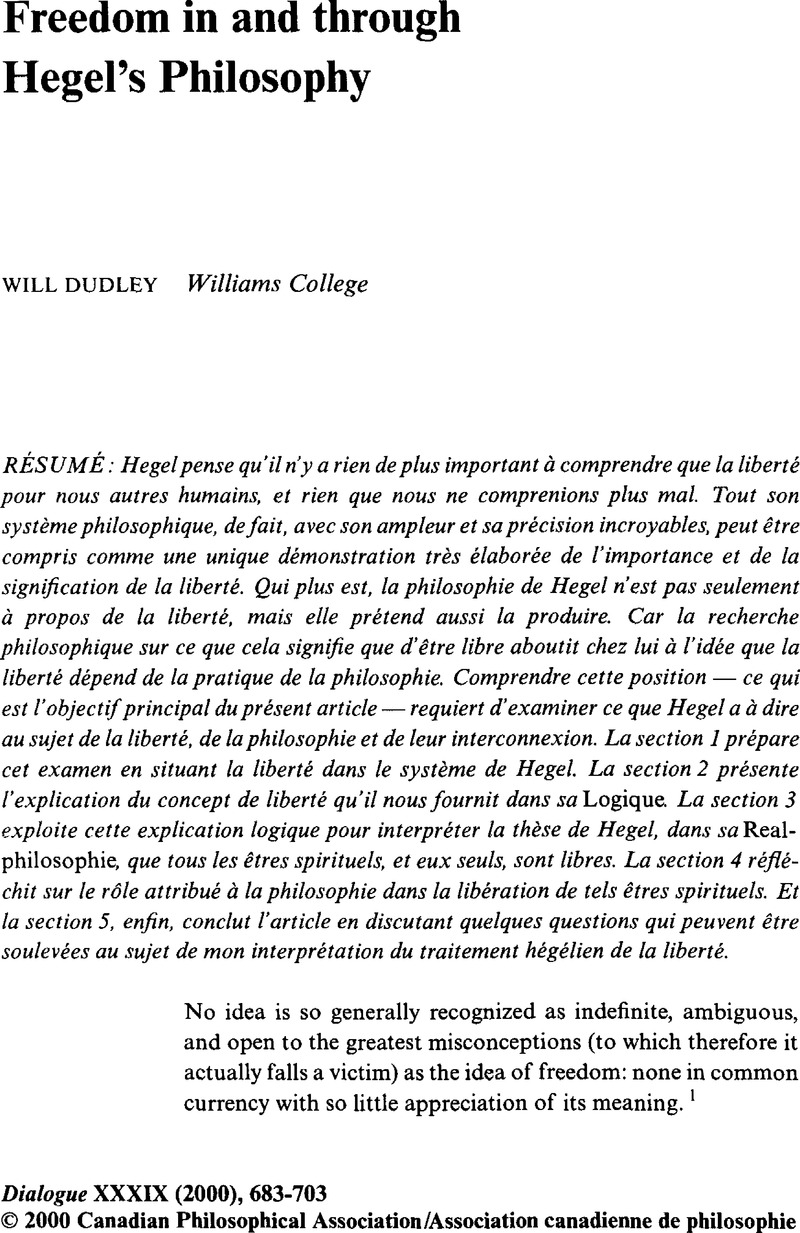
Freedom In And Through Hegel S Philosophy Dialogue Canadian Philosophical Review Revue Canadienne De Philosophie Cambridge Core
From Hegel's point of view, all that is real, and especially the living things, is a more or less developed subject According to the German philosopher, subjects have the faculty to determine and realize themselves, which requires the faculty to judge Unlike Kant, however, Hegel understands the judgment in an ontological wayClose Figure Viewer Return to FigureListe des citations de Friedrich Hegel classées par thématique La meilleure citation de Friedrich Hegel préférée des internautes Retrouvez toutes les phrases célèbres de Friedrich Hegel parmi une sélection de de 100 000 citations célèbres provenant d'ouvrages, d'interviews ou de discours Lisez le TOP 10 des citations de Friedrich Hegel pour mieux comprendre sa vie, ses actes et
The aim of this article is to explain why, in Hegel's view, art's history brings it to the point at which it can no longer afford the highest satisfaction of our spiritual needs and so fulfill its own highest calling, and why, nevertheless, we moderns still need art and still need it to create beauty I argue that Hegel advocates a modern art of beauty because he believes that what has to beArt thesis when he claims that for Hegel art has lost its highest voca tion and asserts that art is in a position to offer the modern world no more than a diversion 6 Finally, it is surely significant that so notable an interpreter of Hegel as Professor Findlay makes no mention of "the death of art" in his own account of Hegel's view of art 7Hegel, on the Arts Selections from GWF Hegel's Aesthetics, or the Philosophy of Fine Art @inproceedings{Hegel1979HegelOT, title={Hegel, on the Arts Selections from GWF Hegel's Aesthetics, or the Philosophy of Fine Art}, author={Georg Wilhelm Friedrich Hegel and Henry Paolucci}, year={1979} }
Hegel art quotesのギャラリー
各画像をクリックすると、ダウンロードまたは拡大表示できます
 Georg Wilhelm Friedrich Hegel Wikipedia | Georg Wilhelm Friedrich Hegel Wikipedia |  Georg Wilhelm Friedrich Hegel Wikipedia |
Georg Wilhelm Friedrich Hegel Wikipedia |  Georg Wilhelm Friedrich Hegel Wikipedia | Georg Wilhelm Friedrich Hegel Wikipedia |
Georg Wilhelm Friedrich Hegel Wikipedia |  Georg Wilhelm Friedrich Hegel Wikipedia |  Georg Wilhelm Friedrich Hegel Wikipedia |
 Georg Wilhelm Friedrich Hegel Wikipedia | Georg Wilhelm Friedrich Hegel Wikipedia |  Georg Wilhelm Friedrich Hegel Wikipedia |
 Georg Wilhelm Friedrich Hegel Wikipedia |  Georg Wilhelm Friedrich Hegel Wikipedia | Georg Wilhelm Friedrich Hegel Wikipedia |
 Georg Wilhelm Friedrich Hegel Wikipedia |  Georg Wilhelm Friedrich Hegel Wikipedia |  Georg Wilhelm Friedrich Hegel Wikipedia |
 Georg Wilhelm Friedrich Hegel Wikipedia | Georg Wilhelm Friedrich Hegel Wikipedia | 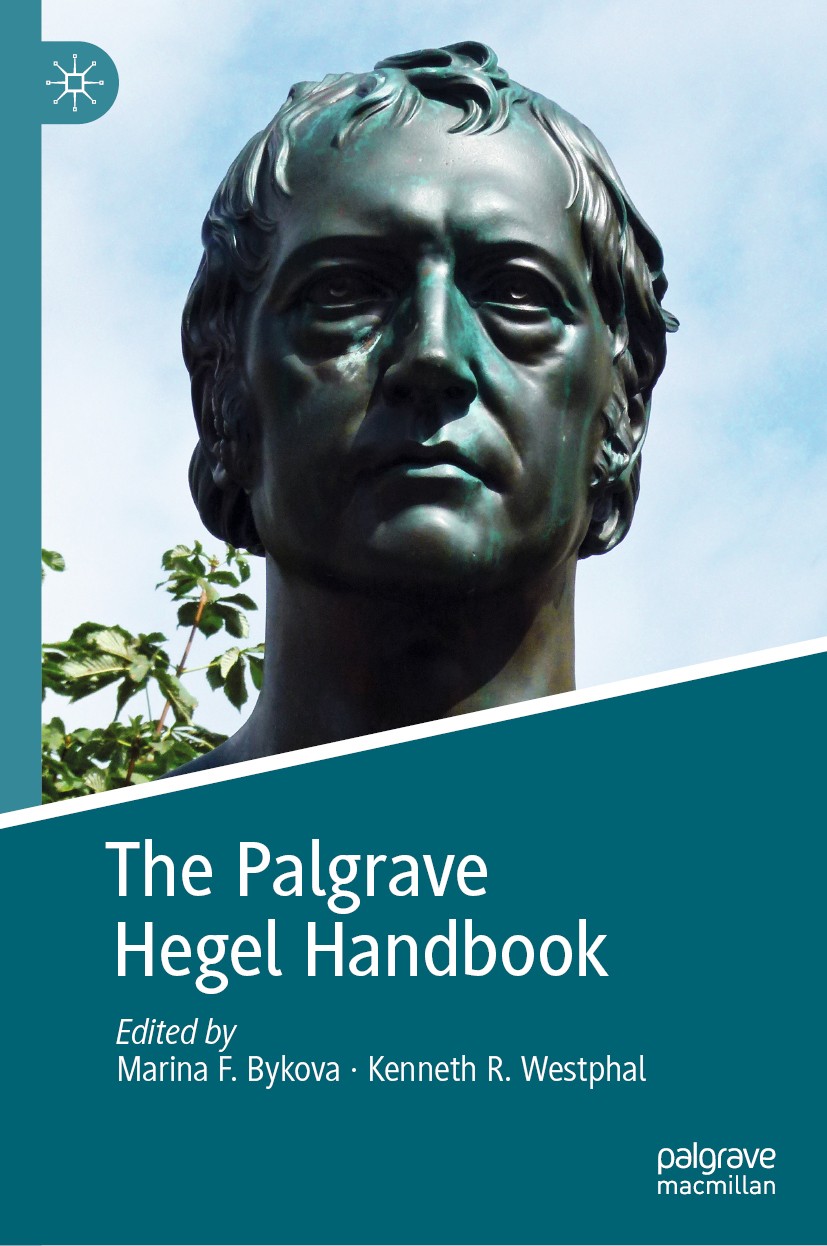 Georg Wilhelm Friedrich Hegel Wikipedia |
 Georg Wilhelm Friedrich Hegel Wikipedia | Georg Wilhelm Friedrich Hegel Wikipedia |  Georg Wilhelm Friedrich Hegel Wikipedia |
 Georg Wilhelm Friedrich Hegel Wikipedia | 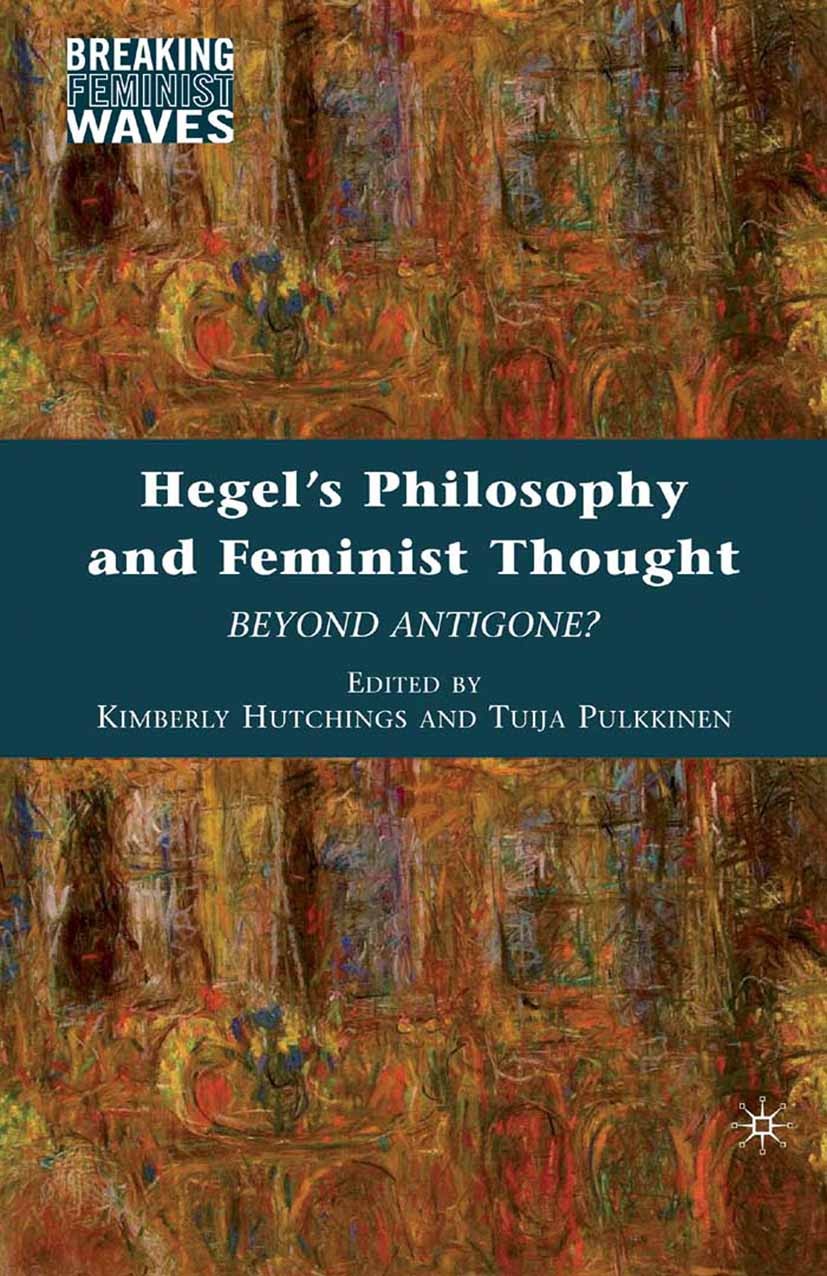 Georg Wilhelm Friedrich Hegel Wikipedia | Georg Wilhelm Friedrich Hegel Wikipedia |
Georg Wilhelm Friedrich Hegel Wikipedia |  Georg Wilhelm Friedrich Hegel Wikipedia | Georg Wilhelm Friedrich Hegel Wikipedia |
 Georg Wilhelm Friedrich Hegel Wikipedia |  Georg Wilhelm Friedrich Hegel Wikipedia |  Georg Wilhelm Friedrich Hegel Wikipedia |
 Georg Wilhelm Friedrich Hegel Wikipedia | Georg Wilhelm Friedrich Hegel Wikipedia |  Georg Wilhelm Friedrich Hegel Wikipedia |
 Georg Wilhelm Friedrich Hegel Wikipedia | Georg Wilhelm Friedrich Hegel Wikipedia |  Georg Wilhelm Friedrich Hegel Wikipedia |
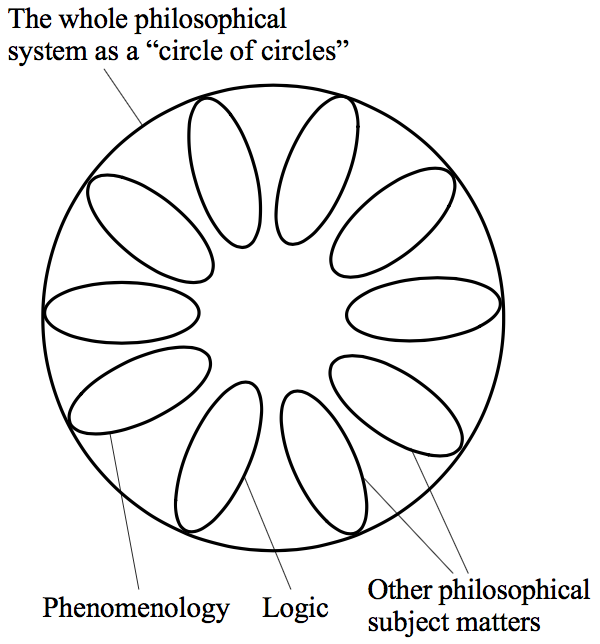 Georg Wilhelm Friedrich Hegel Wikipedia | 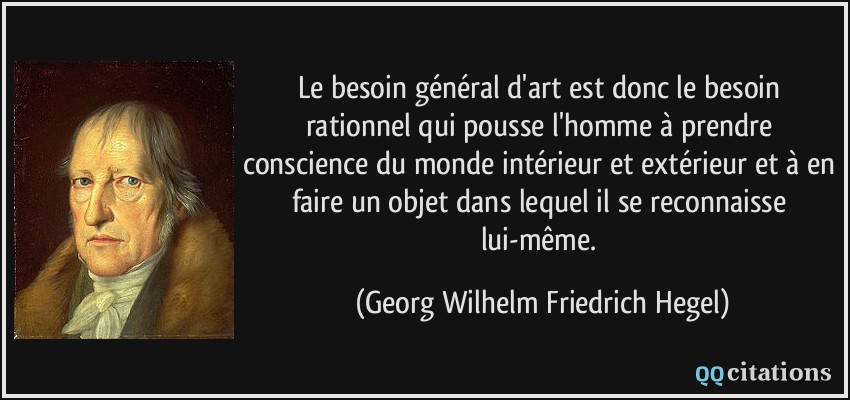 Georg Wilhelm Friedrich Hegel Wikipedia | 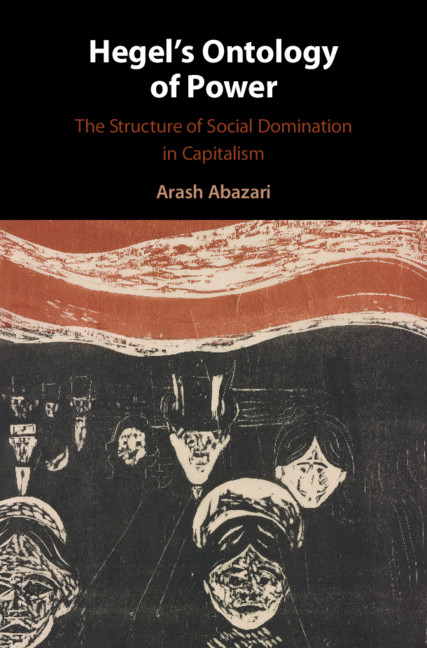 Georg Wilhelm Friedrich Hegel Wikipedia |
 Georg Wilhelm Friedrich Hegel Wikipedia |  Georg Wilhelm Friedrich Hegel Wikipedia | Georg Wilhelm Friedrich Hegel Wikipedia |
 Georg Wilhelm Friedrich Hegel Wikipedia | Georg Wilhelm Friedrich Hegel Wikipedia |  Georg Wilhelm Friedrich Hegel Wikipedia |
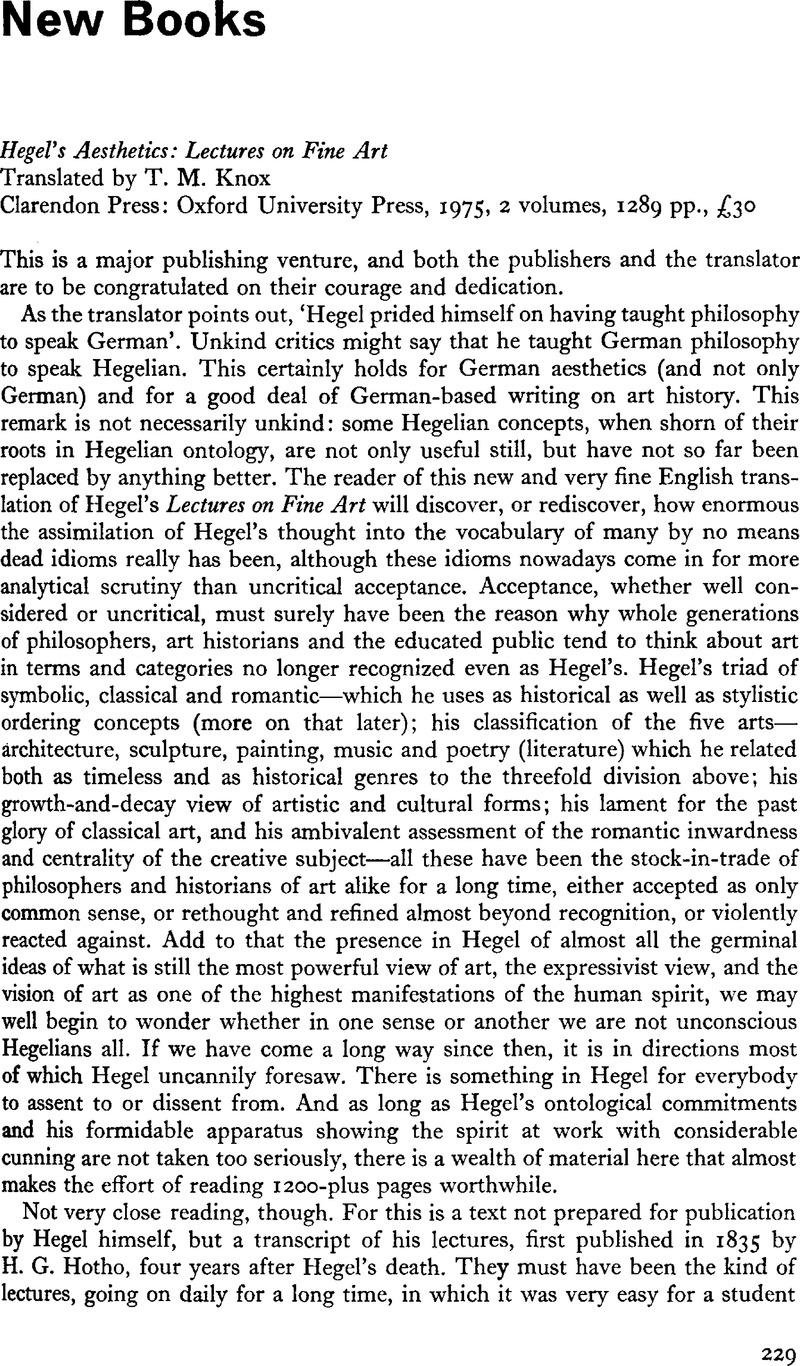 Georg Wilhelm Friedrich Hegel Wikipedia | 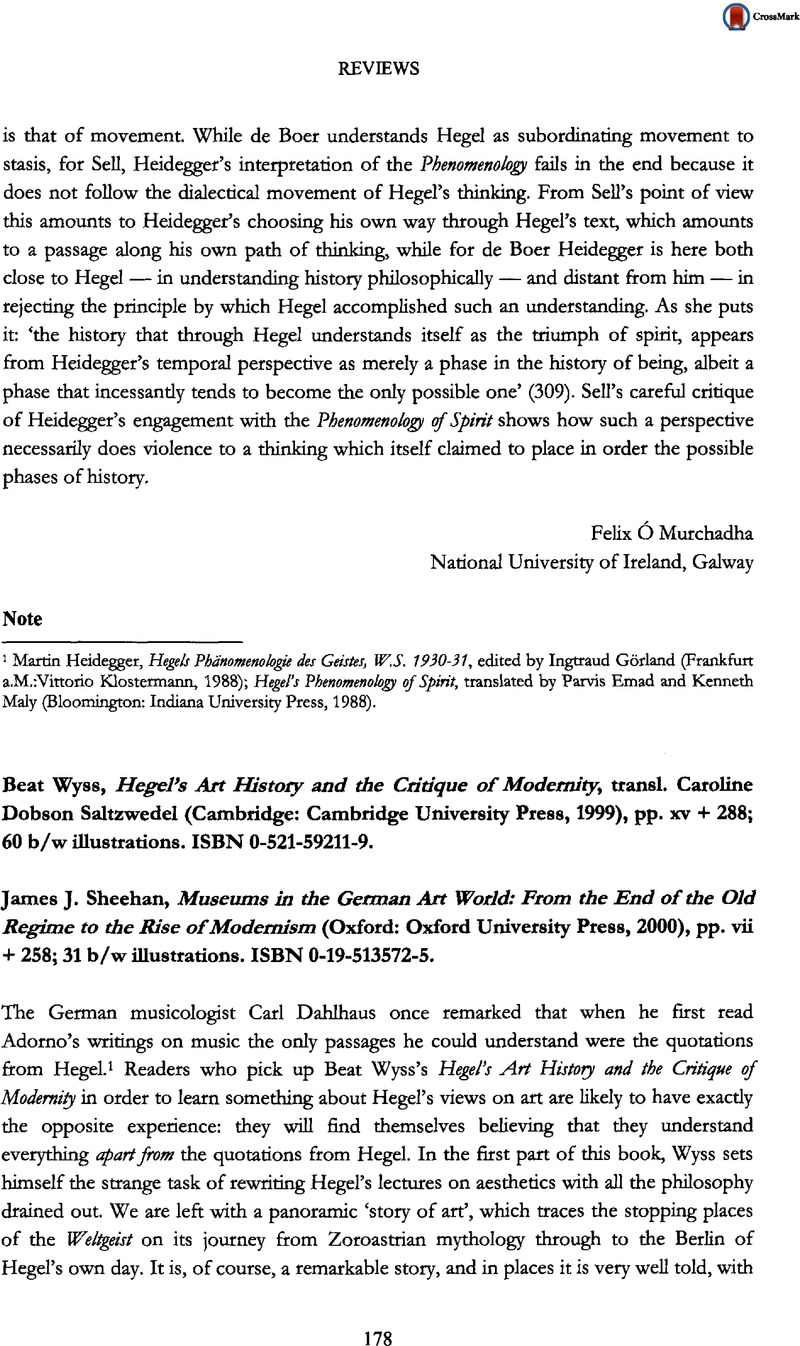 Georg Wilhelm Friedrich Hegel Wikipedia |  Georg Wilhelm Friedrich Hegel Wikipedia |
 Georg Wilhelm Friedrich Hegel Wikipedia | Georg Wilhelm Friedrich Hegel Wikipedia |  Georg Wilhelm Friedrich Hegel Wikipedia |
 Georg Wilhelm Friedrich Hegel Wikipedia |  Georg Wilhelm Friedrich Hegel Wikipedia | Georg Wilhelm Friedrich Hegel Wikipedia |
 Georg Wilhelm Friedrich Hegel Wikipedia |  Georg Wilhelm Friedrich Hegel Wikipedia |  Georg Wilhelm Friedrich Hegel Wikipedia |
Georg Wilhelm Friedrich Hegel Wikipedia |  Georg Wilhelm Friedrich Hegel Wikipedia |  Georg Wilhelm Friedrich Hegel Wikipedia |
 Georg Wilhelm Friedrich Hegel Wikipedia |  Georg Wilhelm Friedrich Hegel Wikipedia | Georg Wilhelm Friedrich Hegel Wikipedia |
Georg Wilhelm Friedrich Hegel Wikipedia |  Georg Wilhelm Friedrich Hegel Wikipedia |  Georg Wilhelm Friedrich Hegel Wikipedia |
Georg Wilhelm Friedrich Hegel Wikipedia | Georg Wilhelm Friedrich Hegel Wikipedia | Georg Wilhelm Friedrich Hegel Wikipedia |
Georg Wilhelm Friedrich Hegel Wikipedia | 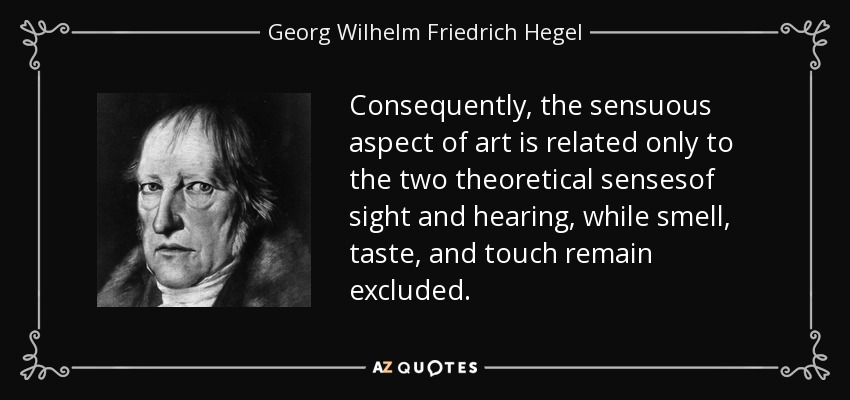 Georg Wilhelm Friedrich Hegel Wikipedia |  Georg Wilhelm Friedrich Hegel Wikipedia |
Georg Wilhelm Friedrich Hegel Wikipedia |  Georg Wilhelm Friedrich Hegel Wikipedia | 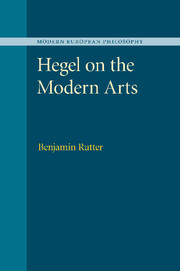 Georg Wilhelm Friedrich Hegel Wikipedia |
 Georg Wilhelm Friedrich Hegel Wikipedia |  Georg Wilhelm Friedrich Hegel Wikipedia | Georg Wilhelm Friedrich Hegel Wikipedia |
 Georg Wilhelm Friedrich Hegel Wikipedia |  Georg Wilhelm Friedrich Hegel Wikipedia |  Georg Wilhelm Friedrich Hegel Wikipedia |
 Georg Wilhelm Friedrich Hegel Wikipedia | 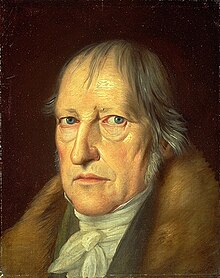 Georg Wilhelm Friedrich Hegel Wikipedia | Georg Wilhelm Friedrich Hegel Wikipedia |
 Georg Wilhelm Friedrich Hegel Wikipedia |  Georg Wilhelm Friedrich Hegel Wikipedia |  Georg Wilhelm Friedrich Hegel Wikipedia |
 Georg Wilhelm Friedrich Hegel Wikipedia | Georg Wilhelm Friedrich Hegel Wikipedia |  Georg Wilhelm Friedrich Hegel Wikipedia |
 Georg Wilhelm Friedrich Hegel Wikipedia |  Georg Wilhelm Friedrich Hegel Wikipedia | Georg Wilhelm Friedrich Hegel Wikipedia |
 Georg Wilhelm Friedrich Hegel Wikipedia | 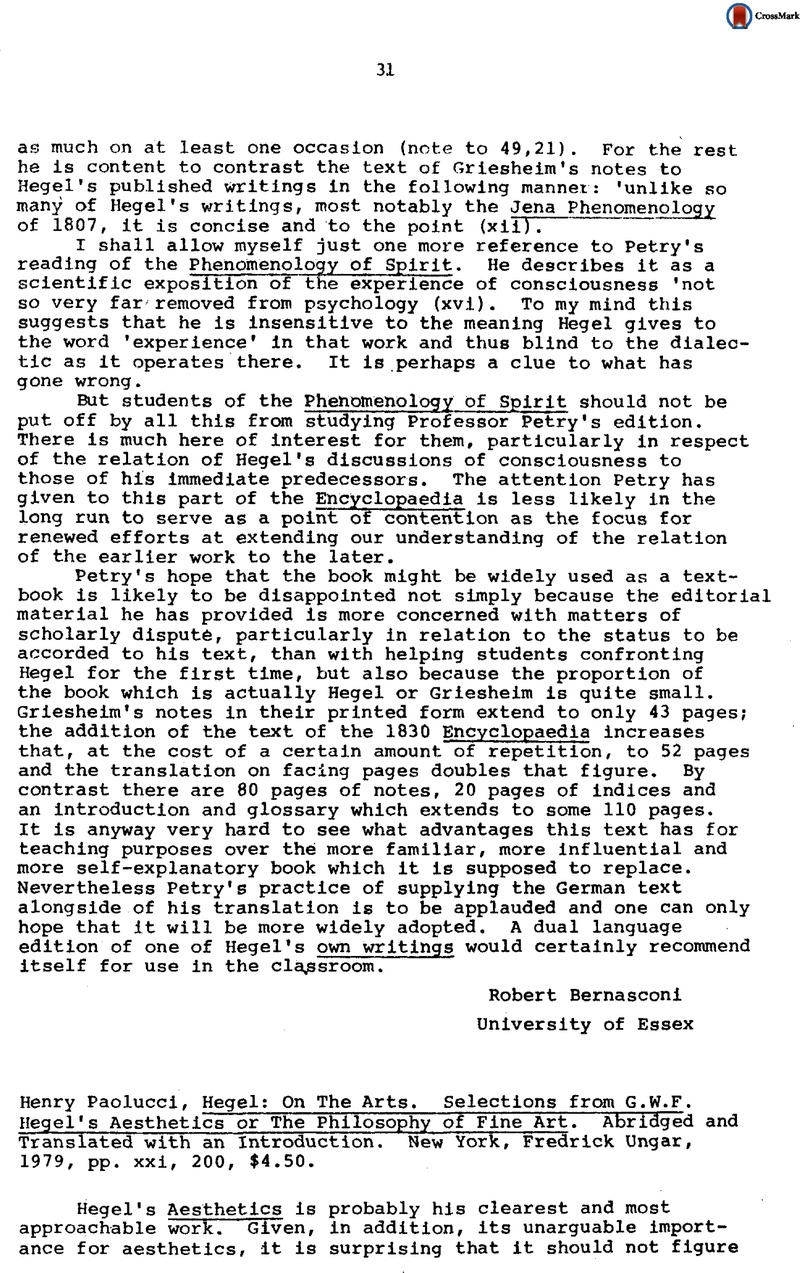 Georg Wilhelm Friedrich Hegel Wikipedia |  Georg Wilhelm Friedrich Hegel Wikipedia |
Georg Wilhelm Friedrich Hegel Wikipedia | 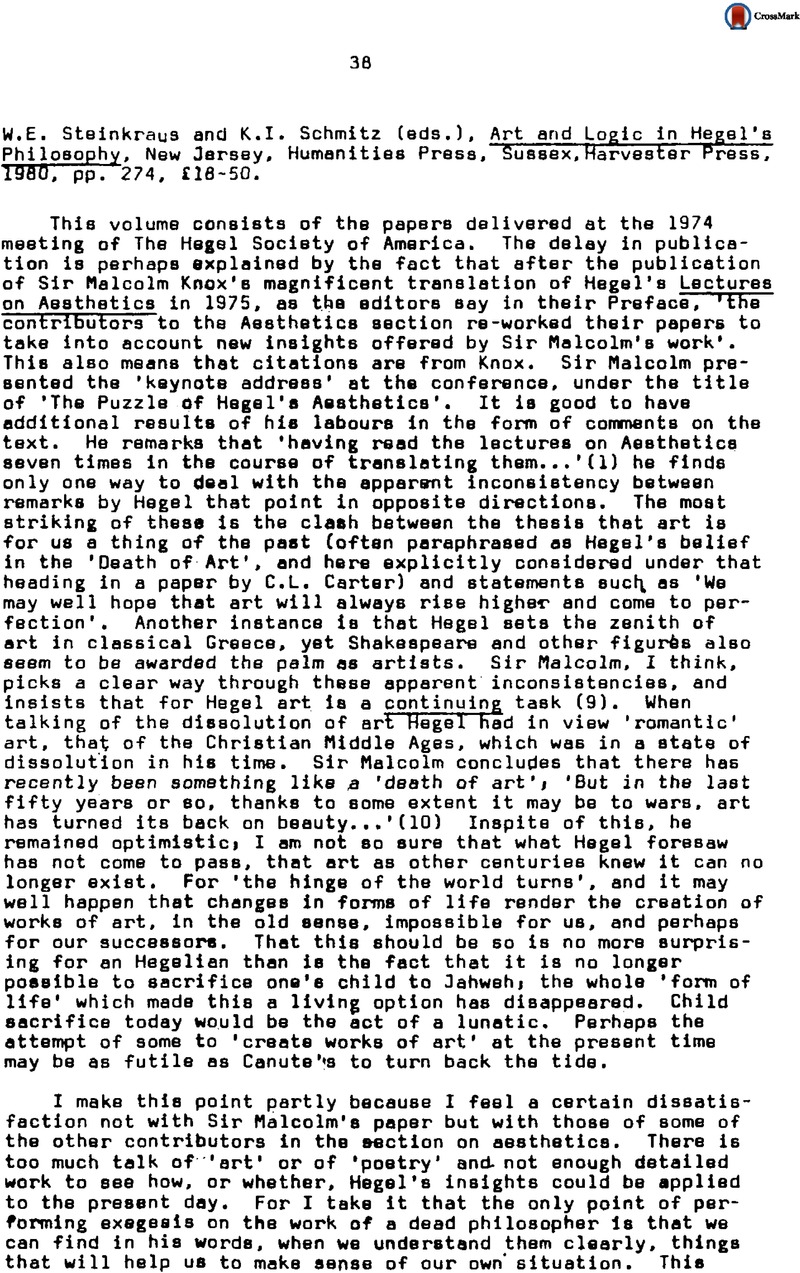 Georg Wilhelm Friedrich Hegel Wikipedia |  Georg Wilhelm Friedrich Hegel Wikipedia |
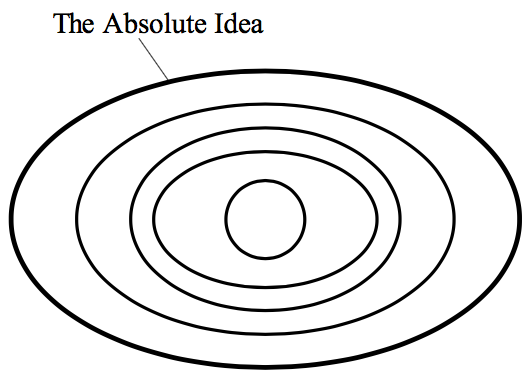 Georg Wilhelm Friedrich Hegel Wikipedia | Georg Wilhelm Friedrich Hegel Wikipedia |
1/1/02 Advanced Search Citation Search Login / Register Chapter 11 E H Gombrich and the Tradition of Hegel David Summers, David Summers Search for more papers by this author David Summers, David Summers Search for more papers by this author A Companion to Art Theory Related;For Hegel, art's unfolding history through time, driven by his famous model of a dialectical relationship between thesis (an idea or an action) and antithesis (a counteridea or
Incoming Term: hegel citation art, hegel art quotes, hegel citation sur l'art,




Aucun commentaire:
Publier un commentaire